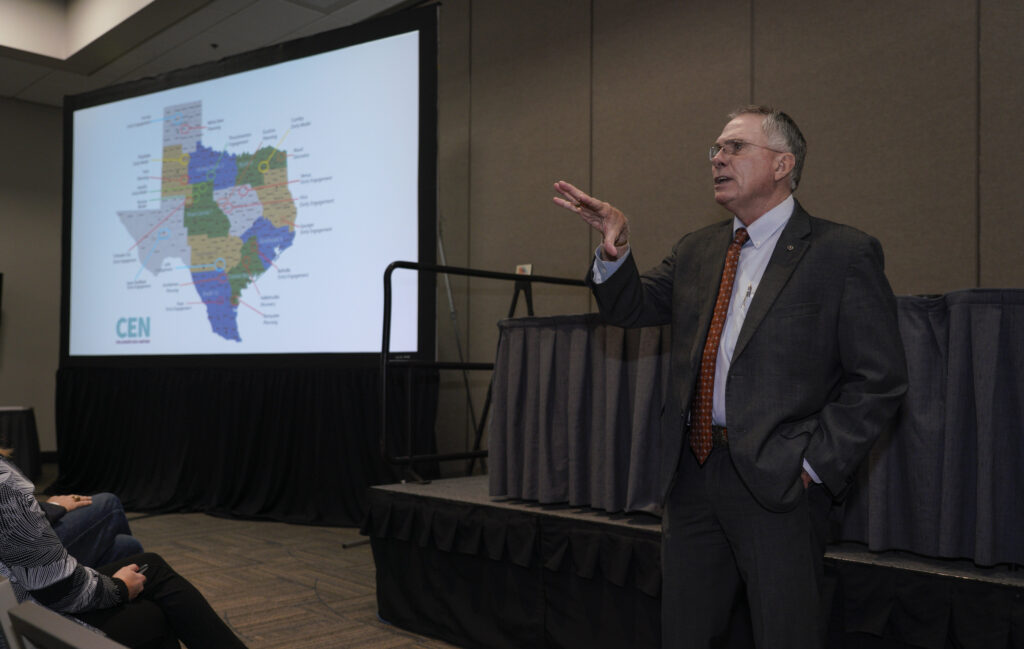Todd Dugan has been hearing the doomsayers for years. The superintendent in Bunker Hill, a community of 1,600 residents in southwestern Illinois, is quite familiar with the widespread notion that brain drain, the death of rural schools and the dwindling of rural communities is an inevitability.
He begs to differ.
“I don’t subscribe to that. I don’t believe it’s inevitable,” Dugan said during an hour-long AASA conference session on Friday afternoon that addressed Collegiate Edu-Nation’s P-20 Model of Empowering Students. “Our goal is to equip enough students to graduate with the skills needed so that they can go make a choice. If you desire to go to Chicago and make a living, we will have prepared you for that. But we’re hoping to create a stable, then growing population of graduates that want to return to Bunker Hill to raise a family.
“And they now know that by going through this school, they’re going to have the skills, equipment and certification needed to stay and make a decent living.”
Dugan’s optimism for his community has been bolstered by his district’s recent inclusion in Collegiate Edu-Nation. Formed in 2019, the nonprofit works to empower rural school districts by providing resources for dual-credit programs, work- and project-based learning and other initiatives.
The network was put on display to a small but engaged group of rural educational leaders at the Collegiate Edu-Nation’s session. The discussion was led by the organization’s chief operating officer and chancellor, Kim Alexander, and its president, Rachael McClain. It featured appearances by participating superintendents Dugan and Randy Burks from Hamlin, Texas.
“A big part of the rural dilemma is that it’s a much different population than it was a generation or two ago. It’s a more diverse population and a more economically disadvantaged population,” said Alexander, who pointed out that 99 percent of the jobs created since 2008 require a postsecondary credential.
“Really, what we’re trying to do is break generational poverty through higher education,” he said.
Collegiate Edu-Nation’s model is a P-20 student journey that starts in pre-kindergarten at age 3. During elementary school the focus is on experiential and play-based learning followed by blended learning that creates student agency and ownership of the learning process.
In 8th grade, students select a pathway for exploring career options. By 9th grade, they begin dual-credit classes. If all goes well, a student will complete an associate’s degree by the time they graduate and have the opportunity for industry-based certifications.
“It’s critical that all students have the tools to be successful,” McClain said. “We’re not just building a model to have success for the students that were going to be successful one way or the other. We’re building a model so that all students have access to these degrees and certifications.”
The network Collegiate Edu-Nation now includes 34 school districts in Texas, one in Illinois and one in West Virginia. Alexander added that conversations with school districts in several other states are heating up.
(Michael Klitzing is a freelance writer in San Diego and a reporter for Conference Daily Online.)


